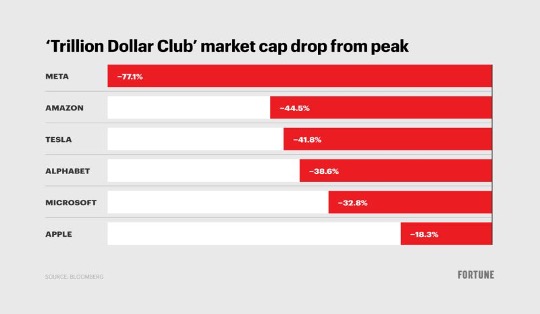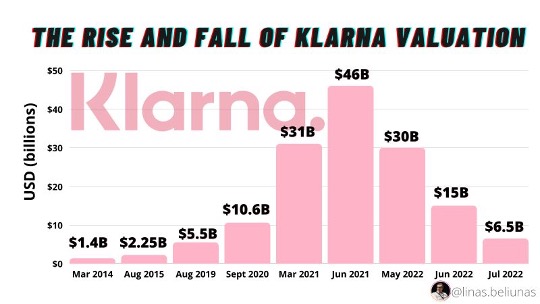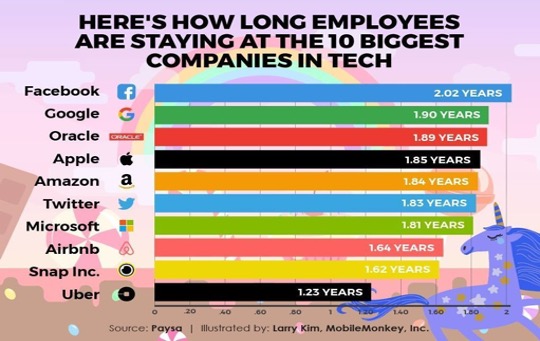
The corporate world is abuzz with the tumultuous wave of talent retrenchment exercises being undertaken within the leading players of the Tech world. The primary reason given by the ‘shrewdly justifying’ executives at the helm of these organizations points to their ‘forced response’ for managing the ‘inevitable hand of fate’ due to the daunting prospects of a debilitating recession that looms over the corporate horizon with a dismal outlook for progressive business activities in the foreseeable future. Unfortunately, this seems a ‘convenient scapegoating’ of the ‘dismal strategic failures in terms of proactive risk management’ at the senior/top leadership levels who have a penchant for ‘Management by Keyboard Clicks (MKC)’ since such issues have plagued the ‘Trailblazers of the Digital Age’ for ages.

However, such shortcomings were routinely ‘brushed under the carpet’ earlier, especially during the ‘boom’ periods that have historically had cyclical patterns, with the most recent being the ‘time of windfall profits’ during the COVID-19 Pandemic. This was also exacerbated by the ‘inflated’ evaluations of startups deemed to be the ‘hot favorites’ for being the next ‘Perennial Unicorns.’

Impact of weak talent management processes
Consequently, the institutionalization of inherently and chronically weak/ephemeral/whimsical policies/processes/procedures has led to ‘murky’ decision-making with respect to the ‘rightsizing’ of the workforce in recent times, especially within the Tech sector, which is manifesting in a number of detrimental ways, e.g.:
- Creating fissures within the multigenerational workforce as everyone is jostling to ‘survive’ and reverting to the ‘primal’ instincts of cannibalizing the careers of peers to avoid getting on the ‘chopping’ block while undermining the cohesiveness of the values-driven corporate culture
- Increasing ‘passive resistance,’ ‘quiet quitting’, and ‘rebellious proclivities’ within the anxious ‘survivors’ of the workforce as a combination of dismay/disbelief/disappointment/despair/despondency descends into the deepest crevasses of their self-reflection for charting proactive ‘exit’ strategies
- Destroying the sanctity of psychological contracts and inviting scorn/cynicism/skepticism of any ‘remedial’ steps undertaken by the corporate leadership to ‘assuage’ the ‘motivational dip’ within the ‘remaining’ workforce
- Nullifying the Employee Value Proposition (EVP) and appreciably denting the ‘hard-earned’ corporate reputations as bastions of progressive career growth and professional accomplishment.
- Weakening the bonds of Employment Relationships and raising the prospect of ‘birthing’ aggressive unions to ‘robustly’ protect the ‘envisaged and codified’ rights and privileges of ‘marginalized’ sections within the workforce
- Creating internal succession problems relating to the senior/top leadership positions and denting future growth/sustainability prospects as ‘battered’ and ‘bruised’ talent starts plotting their ‘exit’ strategies before the ‘axe’ falls on them.
- Raising recruitment and selection costs as ‘capable future hires’ are reluctant to get ‘trapped’ by the ‘mirage’ of corporate promises relating to ‘Total Rewards Packages’ that include ‘delightful’ employee experiences.
- Allowing opportunistic competitors and game-changing disruptors to ‘feast’ on the ‘dithering/disillusioned masses’ as the ‘Human Factor’ gets severely devalued and the doors for ‘Talent Poaching’ open with ‘Organizational Citizenship Behavior’ taking a ‘backseat’ to ‘survival’ concerns pertaining to professional careers.
- Jeopardizing the long-term survival of the organization by living on ‘Quarter-to-Quarter’ financial results while bowing to the demands of the shareholders rather than enthusiastically embracing and fulfilling the expectations of the key stakeholders
- Reflecting the glaring lack of sound financial practices as ‘corrective/preventive measures in the form of ‘mass layoffs’ are generally not an effective ‘panacea’ to ‘buffer’ against the headwinds of slow/stagnant business activities during economic downturns.
Reasons often disputed
Some of the key reasons that are often disputed/discarded/dismissed by the apathetic senior/top leadership for the ‘unabated’ and ‘unabashed’ squandering of talent in the Tech world are as follows:
- Hiring for ‘anticipation’ instead of hiring for ‘need’ by leveraging the ‘future’ of the organization on the probability/speculation of an increase in economic activity and frantically ‘disposing’ unwanted talent when things don’t go according to plan
- Leveraging technology to create buffers/distances in terms of assuring/ensuring protection from the ‘face-to-face blowback’ of ‘difficult/controversial’ decisions, e.g., gravitating towards remote team management, preference for employee firing by email/memo, eagerness to engage/utilize the Metaverse, etc.
- The ‘foresightedness’ of ‘Talent Retention’ (you are treasured because your skills are strategically important for the long term) is ‘steadily and readily substituted’ by the ‘shortsightedness’ of ‘Talent Expediency’ (you are kept because you are operationally important for the short term).
- Obsessing over FOMO (Fear of Missing Out) is business-driven and opportunity-focused, while neglecting/marginalizing FOLO (Fear of Losing Out) is organization-driven and talent-focused instead of seeking a sound balance between the two imperatives.
- The ‘maniacal’ embrace of desired profit margins at the cost of ‘humanistic’ concerns while displaying ‘unflinching willingness’ to dispense ‘vicious strikes’ of the ‘rightsizing’ hammer on unsuspecting and uninformed talent in a desperate attempt to counter rising challenges to cherished market positions.
- Lack of ‘Actionable Accountability’ at the senior/top levels of the corporate leadership for the ‘devastating’ loss of precious (and often) irreplaceable talent, priceless ‘knowledge bank,’ stellar corporate reputations, and hard-earned goodwill. The ‘ground reality’ of the ‘dilution’ of the expression ‘taking responsibility’ routinely manifests in terms of nothing happening to the upper echelons of the corporate hierarchy for the catastrophic strategic failures in decision-making while an array of excuses is lined up to ‘cover’ the incriminating tracks.
Mass firings are a ‘Public Relations’ nightmare and tend to linger in the minds of the main affected parties, i.e., ‘victims’ and ‘survivors,’ while stigmatizing corporate reputations and degrading goodwill. The respective impact inevitably permeates beyond the ‘boundaries’ of the organization, especially within the capable talent that is actively sought by eager employers as ‘future investments’ to eventually rise at the highest levels to maintain their relevance and competitiveness.

Consequently, it is prudent for the ‘Doyens of the Digital Age’ to heed the old adage ‘Actions Speak Louder than Words’ and take an honest look at improving their leadership shortcomings according to the demands of the Digital Age. The ‘rapidly obsolescing’ practice of dangling ‘Perks’ in the hopes of ‘catching’ desired talent is ‘Converting Perks into Peeves’ within an increasingly cautious and apprehensive talent pool that is ‘conscientiously unwilling’ to be ‘duped’ anymore by the promise/lure of a ‘fake/fleeting’ workplace nirvana. The question remains: Will they learn from history or let history keep repeating itself?




